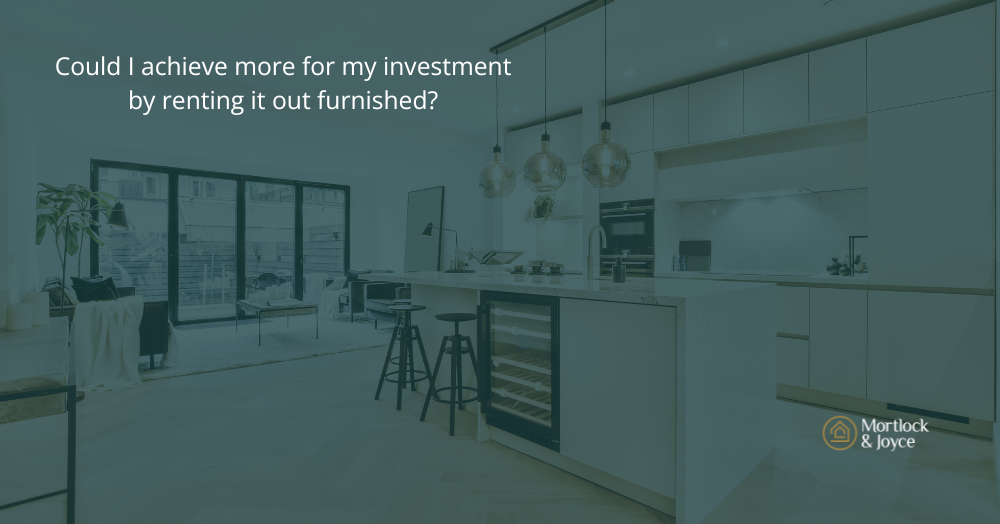A decision a lot of landlord’s face when renting out their home is to decide whether their rent out furnished or unfurnished.
Both furnished and unfurnished have their merits and, I think the advice should be given depending on the type of property you have, the area, and what current tenants are searching for.
The short answer is yes, you should achieve more for your property when it’s furnished. Some tenants will not have their own, and by saving them the hassle and expense of purchasing and moving furniture, it can be a big convenience and significant selling point. Especially to students, young professionals, or individuals relocating for their work.
BUT it can come with its negatives like:
1) Higher initial investment:
Furnishing a property can be costly, especially if you opt for quality furniture and appliances. The upfront investment may require a significant financial commitment, which could impact your cash flow.
2) Increased maintenance and wear and tear:
In the UK, we can only take 5 weeks deposit. Furnished properties are more prone to wear and tear, as tenants may not treat the furniture as carefully as they would their own. Where we are only able to accept a 5-week deposit, you may want to be cautious about the cost of furnishings themselves. They can also require maintenance and occasional replacements may be necessary, adding to your responsibilities and expenses.
3) Length of time:
Usually, as a minimum, we would suggest supplying white goods. We’ve found tenants who buy their own furniture often stay the longest, as they’ve intentionally bought things to fit your particular space and rehoming them wouldn’t be easy.
4) Limited personalisation for tenants:
While some tenants appreciate the convenience of a furnished property, others may prefer to bring their own furniture and personalise their living space. By offering a furnished property, you limit tenants' ability to make the space their own.
5) Potential for higher insurance costs:
Insuring a furnished property may be more expensive than insuring an unfurnished one. The added value of furniture and appliances increases the risk of potential damages or theft, leading to higher insurance premiums.
In either case, there are numerous benefits, but it is essential when speaking with your agent, that you discuss what is feasible, and more practical for you and whether it would help your ideal tenant. If you would like to discuss this with one of the team over the phone or book an in-person meeting, we would be happy to help.


